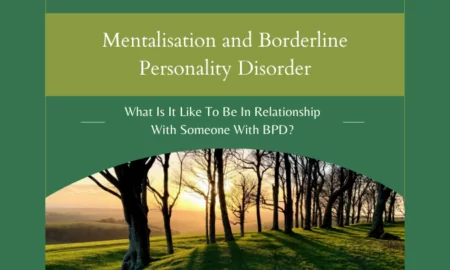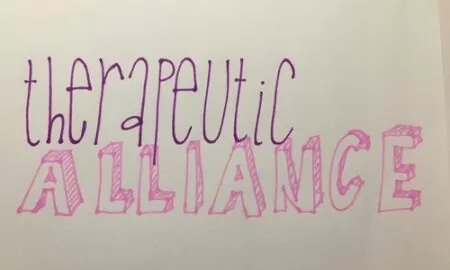Attachment Issues Counselling
From the moment we are born, every relationship we have plays a role in our emotional development. Each one can impact on us and could contribute in some way to our unique and individual identity.
What is Attachment Theory?
Attachment theory was initially developed in the 1950s by John Bowlby but has since grown through the insights and involvement of others. The theory of attachment focuses on relationships or emotional bonds between people. This includes not only romantic relationships but those between mother and child too. The mother-child relationship is particularly important as this is where our early learnings about relationship begin. It has the potential to offer us a hugely valuable insight into how we are in relationship with others. Without realising it, this early learning can then also inform how we expect others to behave, what we believe we can get from them and much more.
Where Do Attachment Issues Begin?
For the majority of us, the relationship we have with a primary care-giver, usually our mother, is our first long-lasting and trusting relationship. Sometimes however, for a variety of reasons, this may not be the case. Separation, trauma or neglect could all mean that this first potential relationship does not get sufficient nurturing or attention. This is not always within the control of the parents either, for example if a baby is very unwell and needs to be looked after in a special environment.
For whatever reason, there may be uncertainty, mistrust and fear giving our early experiences and relationships a shaky start. Our experience of a safe, secure and healthy attachment could disrupted and we may experience unpredictability or even negativity from early care-givers. As babies and young children we are learning that adults cannot be trusted and can be unreliable. As a result we may develop an insecure attachment style.
It is important to acknowledge that there are other factors which influence our attachment style, not just those very early relationships. Differences in temperament, cultural expectations or critical infant medical conditions could potentially also affect attachment style.
Attachment Issues in Adulthood
Attachment issues are a spectrum of severity and unresolved childhood attachment issues could result in a number of challenges for an adult. These focus primarily on an inability to form secure emotional bonds with others. Behavioural and emotional issues affecting their development and mental well-being may also be experienced.
An adult with attachment issues may find relationships challenging. They may avoid intimacy and shun the support of others in times of need. In relationship they may be jealous, possessive, paranoid, insecure, anxious or impulsive. They might find commitment difficult, anger quickly or want to have control in a relationship. Addictive behaviours may also be a factor. Alternatively, they may be “clingy” or “needy” in relationships, constantly requiring the attention and validation of others when in relationship. Different styles come under different insecure attachment styles.
When sufficiently severe, attachment issues may meet criteria for an attachment disorder.
Psychotherapy for Attachment Issues
The good news is that everyone has the capacity to change. If the way you are in relationship is no longer working for you, you can change and re-learn healthier ways of being.
Psychotherapy can be incredibly useful for anyone experiencing attachment issues. It can be a time and space in which you can explore the nature of your attachment issues and deepen your understanding and awareness of your personal experiences. Together we also have the chance to support you in forming corrective experiences of positive attachments and building healthy relationships.
Get in touch to arrange an initial no-obligation assessment.

Book a Consultation
Frequently Asked Questions
The terms ‘Psychotherapy’ and ‘Counselling’ are often used interchangeably and essentially they are both characterised by a form of “talking therapy”. You will see many practitioners will use both terms when referring to themselves.
Fundamentally both psychotherapy and counselling have the same goal of providing relief to someone with some sort of psychological symptom or obstacles although there are some subtle differences.
‘Counselling’ is often used to describe a shorter-term process than psychotherapy. A goal in counselling is to enable someone to make better use of resources they may already have in place. Counselling often focuses on a specific issue, life event or experience or on a particular symptom.
‘Psychotherapy’ is often a longer process of treatment and focuses on facilitating the exploration and development of new resources for a person. In psychotherapy you will have the chance to look deeper into the root of your issues. You will have the chance to explore patterns of behaviour, thinking and feeling in your life at a greater depth that allow you to focus more on your way of being in the world.
Psychotherapy training is also a more rigorous and academic process.
Someone who may be in training to be a Psychotherapist may refer to themselves as a Psychotherapeutic Counsellor until they have completed certification to be known as a Psychotherapist.
I hope that my website has given you an overview of who I am and how I work and if you are interested in finding out more I would recommend an initial consultation to meet each other to see if it feels right for you when we are in the room together. We will probably be able to establish quite early on if I am the right person for you.
Choosing a therapist is a very individual choice and I recommend you take the time to meet at least a couple people with a view to having some thought about who you may work best with. I believe that each relationship is individual and unique and it is a privilege for me to get to know people I see and to support them on their therapeutic journey. Relationship is central to building a therapeutic alliance and working together, so trust your instinct to make a decision and start your own journey.
I look forward to meeting you!
Following our initial assessment, if you would like to start sessions together we will agree a day and time for your sessions. I will send you a standard therapy agreement that outlines my commitment to you and it details much of what I would have discussed in the assessment session. This includes details of my professional commitments and of the administrative aspects of our therapeutic relationship. We will both have a signed copy of this agreement.
Payment is due each session and I accept cash or BACS transfers. Any missed sessions with less than 48 hours notice will be payable on the following session.
If you want to work longer term I am also happy to work on monthly payments.
Attachment Related Blog Posts

In a Relationship with Someone with BPD?
Being in a relationship with someone who has Borderline Personality Disorder (BPD) can be emotionally intense and, at times, confusing. You may experience moments of deep connection, only to be…

What Is The Therapeutic Alliance and Why Is It So Important
The therapeutic alliance is the key to successful psychotherapy. It is the strength of the bond and connection that can be built between you and your therapist over time. Without…
Ready to Make a Change? Book an Initial Consultation Today
If you have any questions at all about therapy or would like to make an appointment, get in touch. I will usually be able to respond to you within 24 hours.
